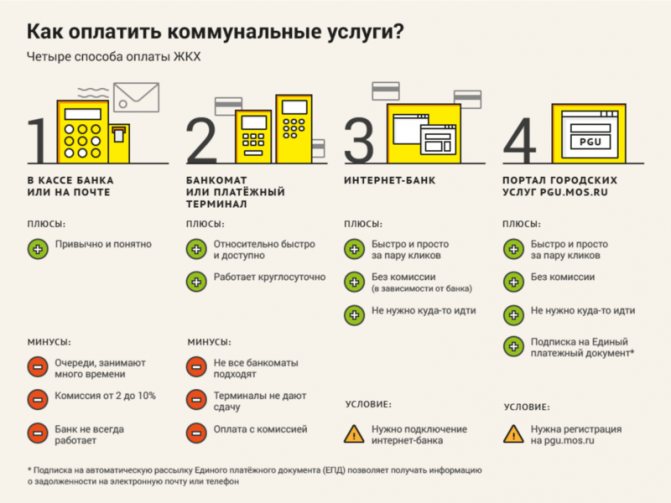If no one is registered Registered, but no one lives How to force them to pay?
Read on our website about how many people can be registered in an apartment and what are the risks and consequences for the owner when registering an unauthorized person. Find out also whether you need to sign up to register at a new address and how to obtain written consent from the owner to register at your place of residence.
general information
Is there a dependence of the size of the rent and payment for the use of services on the number of people registered in the apartment ? Yes, there is such a dependence, and it is directly proportional to the number of people registered in the living space of a particular apartment.
In Art. 2 of Law of the Russian Federation No. 5242-I directly states that you need to live where you are registered, otherwise this registration will be called fictitious.
Regardless of whether citizens live, where they are registered - it does not matter, temporarily or permanently, all payments will be accrued .
Read about the features of registration in privatized, communal, mortgage and municipal apartments in our articles.
Accruals
What utilities are paid based on the number of services prescribed? How much do they pay for registration per person? There are average and approved prices in each region for the use of utilities, per 1 person.
How is the calculation carried out? If there are no meters for any energy carrier, then payment for:
- gas;
- hot and cold water supply and sanitation;
- electricity.
Will be calculated for payment according to these average rates. There is also a cost per resident for household waste removal.
If there are meters, the actual amount of gas, water, and electricity used matters, and the more people live, the greater the consumption.
If you spend water and electricity carefully, it is possible to reduce consumption and, accordingly, the fee, but in any case, the use of metering devices makes the payment more specific and fair, since it occurs precisely for the liters and kW/hours consumed.
For house maintenance and heating, payment is based on the area and does not depend on the number of people registered.
Many houses have heat meters at the entrance; in this case, the total consumption of thermal energy is divided by the total square meters of the house's area and the cost is not averaged over the region, but specific to an individual residential building, per 1 m2.
The presence of heating meters also makes it possible to pay for the actual heat consumed , but still this amount depends not on the number of residents of the apartment, but on its area, and on the total area, not on the living area (the corridors, toilet and bathroom are heated, although this is the area not residential).
Find out on our website whether it is possible to register in an apartment without the presence of the owner, as well as whether it is possible to register a person without his personal presence.
Does the rent depend on the number of registered or temporarily registered people, how is it calculated?
In order to understand whether the rent depends on the number of registered people, you need to understand for yourself how utility bills are calculated, what they consist of, and where the final amount of the rent comes from.
How is the rent calculated and what does it consist of?
In fact, a whole separate section of the Housing Code of the Russian Federation is devoted to this issue. But, of course, it’s quite difficult for a non-specialist to figure it out, especially considering that many rules regarding rent are scattered not only across this code, but also across other regulatory documents.
For example, there are huge (for a normal person, not a lawyer) “Rules for the provision of utility services to owners and users of premises in apartment buildings and residential buildings,” which were approved by a decree of the Government of the Russian Federation of May 6, 2011.
It may seem that utility bills are quite complicated to calculate. It is better to leave delving into all these documents to specialists. We will tell you about rent in a simpler way.
Let's say right away: yes, the rent depends on the number of registered people. But there are many nuances.
If we summarize information from laws and similar sources, it turns out that payments for utility services are charged for the following types of household services:
- Housing maintenance. This service applies to apartment buildings and means all the expenses that must be incurred for the normal care of all areas of the house, except for the apartments themselves. After all, in an apartment building there are basements, attics, entrances - all this needs to be heated, lit, washed, etc. And you also need to pay the people who will manage this farm. All these expenses are included in the payment for the maintenance of the house.
- Hiring fee. Those who live not in their own housing, but in what belongs to the state or municipality, or department (with the execution of a rental agreement) are required to pay it.
- Payment for the actual utilities. This includes gas supply, electricity, heating, and water. You also need to pay for drains (sewerage) and garbage removal. There are payments for solid fuel if the home is heated by a stove, and payments for gas in cylinders.
- Homeowners, among other things, must also make contributions for major home repairs.
What depends on the number of prescribed and what does not
To understand exactly which utility bills depend on the number registered in the apartment, you just need to turn on the logic.
It is clear that the number of registered people has absolutely no effect on the accruals that are obtained according to the metering devices . As a rule, users have meters installed for electricity, water (and therefore wastewater), more and more often apartments have gas meters, and somewhat less often - heat meters. That is, what the meter shows is what we pay for, and the number of registered people no longer participates in the calculation of utility bills (in this part).
True, the amount of electricity, gas and water consumed inevitably changes depending on the number of people living in the house, and if the number of registered people is greater, then the fee for all these services also increases. It turns out that if there are meters, the number of registered ones will affect the payment for the recorded services only indirectly: if these registered ones actually live in the house and spend more resources.
But if metering devices are not installed for the communal apartment, utility bills are calculated strictly based on the number of all registered persons. Then the tariffs approved by local authorities per user per month are taken and simply multiplied by the number of registered ones.
And in practice, I don’t remember spenders who would spend more water or electricity than when calculating by the number of residents , according to tariffs. This means that it is still wise to install a meter rather than save on it and then “pay twice.”
A separate discussion is the size of the fee for garbage removal. If before 2017 it was included in the total cost of maintaining a house, then from now on, from January 1, 2017, household waste removal is equal to utilities such as electricity. There will now be a regional tariff for solid waste, and the payment will be calculated according to it, which depends, of course, on the total number of registered, legally registered residents.
Another category is services related to the size of the housing area used by the payer. After all, for example, the entire area of an apartment is heated, even if no one is registered or living in the apartment . And an apartment building with all its equipment also needs to be maintained regardless of the presence of residents in it. It is therefore logical that the amount of payments for such services does not depend on the composition of the prescribed ones.
What if the registered people do not live in the apartment?
In such situations, when the rent is related to the number of registered people, the owner or registered person, if he does not actually live in the apartment, has the only way to reduce his expenses. An application must be sent to the management organization or resource supply company. In the application, indicate that the tenant lives in another specific location and pays for services there. The company may require proof - receipts.
If there are no supporting documents, the fact that the tenant does not live at his place of registration, as they say, is “his problem.” According to the law, you will have to pay, and this is fair - not at one address, but at another address, a person is obliged to pay for what he uses.
If no one is registered
The absence of registered tenants does not at all relieve homeowners from the obligation to pay rent.
As mentioned above, the house must be kept in order: for example, heating, repairing pipes, painting entrances, repairing the roof, and much more.
Therefore, it is a reasonable requirement for the owner - all payments calculated from the area are paid in full, even if no one is registered in the housing. If you have meters, you won’t have to pay extra. But if not, payments for water, gas, etc. According to the law, it must be paid for one tenant. Just in case. Otherwise there would be a lot of smart people who would live and not pay.
It turns out that once again it will be fair and sensible to spend money on meters and then not be offended by the laws.
In a communal apartment
A communal apartment is an apartment where individual rooms belong to different people, and common areas (kitchens, corridors, bathrooms and other auxiliary rooms) are shared by all these people.
The law, again, quite consistently distributes utility bills in a communal apartment. For all services that a person receives in his room, he bears the costs himself.
And the funds that are necessary to maintain the common (so to speak, auxiliary) premises of the apartment are divided among all owners of the rooms in proportion to the share of the corresponding room in the area of the apartment. The size of this share depends only on the area of the room, and it cannot be changed in any way (buying, selling, or allocating it separately is not allowed).
Impact of temporary registration (at place of stay)
Whether temporary registration affects utility bills is stated directly and simply in Article 155 of the Housing Code (Part 12). It says that the responsibility for paying for utilities received by a temporary tenant rests with the tenant . This means that the tenant (in simple terms, the tenant) assumes all financial responsibility when he allows a temporary settler to live with him.
But! The same article says that during temporary registration it is necessary to conclude an agreement (it is called additional - because there is a main rental agreement or something similar). This agreement must be valid while the temporary guest lives in the apartment. It is this agreement that can protect the apartment owner from an unscrupulous temporary tenant, because the agreement can provide that utility bills during temporary registration must be reimbursed to the apartment owner by the temporary tenant.
Owner or registered – who pays
The law states what utilities the homeowner must pay. All services. In other words, the owner or tenant (tenant) bears all responsibility for payments . Nothing is said at all about the registered persons and their responsibilities in the Housing Code. But this is incomplete information. Because if people are registered, it’s not easy. This means that they are either family members of the owner of the property or members of the family of the tenant.
People with this status have every right to live in an apartment (house) and enjoy all the benefits of their home on an equal basis with the owner or tenant.
And where there is rights, there is responsibility. Therefore, family members of the owner or tenant of housing must pay certain amounts of utility bills on an equal basis with them, according to the law.
Now, if family members live unregistered, then the management company will only ask the owner for non-payment. They say that the management company knows nothing about people living without registration. Therefore, the owner himself must take care of his wallet and make claims for rent to his unregistered family members. Or register them.
How to force payment of utility bills
Of course, we will talk about legal methods. The question of how to force a registered person to pay utility bills is solved in almost the same way as in relation to an unregistered person. And the methods are:
- Conclude a written agreement outlining payment obligations;
- Divide personal accounts by home. Depending on the nature of the relationship, the status of the registered person and the characteristics of the housing, you can address this issue to the management company or to the court. There is housing in which this cannot be done (for example, a one-room apartment).
- If the person registered is no longer a family member, he can be evicted. To begin with, you can tell him about this intention (depending on what kind of person and what kind of relationship).
- If someone who is registered as a family member of the tenant stops living in the apartment, and rent has to be paid for him, he can be discharged through the court (recognized as having lost the right to housing).
- File a lawsuit against the defaulter to recover rent costs. Remember that the application period is three years, unless there are good reasons for missing this period.
Compliance with the listed requirements and rules, if treated carefully and punctually, significantly increases the chances of the owner and other homeowners for the peaceful use of their home. Information about the impact of registration on the amount of rent should make some uninformed owners think about whether it is worth registering random people in the apartment, or whether it is better to be careful.
0
Author of the publication
offline 1 day
GarryB83
0
Comments: 0Publications: 1252Registration: 07/17/2018
Share of prescribed
If the owner needs to separately determine how much everyone who is registered here should contribute, then the total amount for each energy carrier and rent must be divided by the number of registered people, determining the amount. This is the share of the 1st prescribed . Roughly, the total can be divided among all registered in equal parts.
Does the number of registered people affect the rent? How much does the rent increase when a person registers?
The amount will be higher for water, sewerage, gas, electricity, garbage removal, as it is calculated for 1 person. Rent and heating will not increase, as they depend on the area, which has not changed.
You can learn about what registration without ownership rights is, as well as what rights registration in an apartment gives you from our articles.
Dependence on the number of people
Does payment for an apartment and services depend on the number of people living in the apartment? Yes, of course, they do, except for the rent and heating services, which will remain the same.
If 1 person is registered in the living space of an apartment, then now he will be billed more, in direct proportion to the number of residents .
If 2, 3, 4, 5 people , then the previously billed amount for 1 person now needs to be multiplied by 2, 3, 4, 5 respectively for:
- gas;
- electricity;
- hot and cold water;
- waste hot and cold water waste;
- garbage removal.
Rent and heating costs will not change .
What utility payments depend on the number of registered people? What in the rent depends on this amount? on the number of registered citizens:
- electricity;
- gas;
- water (cold and hot);
- removal of household waste.
Other payments do not depend on this.
Calculation of utility fees
Appendix 2 to the Rules for the provision of utilities to owners and users of premises in apartment buildings, approved by Decree of the Government of the Russian Federation dated May 6, 2011 N 354, provides formulas for calculating the amount of payment for utilities .
The calculation directly depends on the number of people living in the premises. Therefore, in some formulas the concepts of the number of permanently and temporarily residing citizens .
How to determine whether a person lives permanently or temporarily in a residential building? Especially for those who doubt it, in letter dated November 10, 2016 N 37404-AT/04, the Ministry of Construction of the Russian Federation explains how these two concepts differ.
Permanently residing citizens are citizens registered in premises at their place of residence. Citizens registered in the premises at the place of stay are considered to be temporarily residing there.
According to clause 3 of the Rules, approved by Decree of the Government of the Russian Federation of July 17, 1995 N 713, the place of residence is the place where a person lives temporarily. This could be a hotel, sanatorium, holiday home, tourist center, or housing that is not a person’s place of residence.
The category of temporary residents also includes citizens living in residential premises without registration in it. Such citizens do not have registration either at their place of residence or at their place of registration.
How to recalculate CG correctly and not offend anyone, read our article
Obligation to pay
Regardless of the form of ownership and management structure of a residential building , for the services provided to residents, funds must go specifically to each resource supplier, that is, to the enterprise that supplies the population with gas, electricity, water, heat, and is responsible for the timely removal of household waste.
Who pays the rent? Who is responsible for paying utility bills?
Each of the suppliers enters into an agreement with the housing office or directly with the responsible tenant, and the bills are addressed to him, that is, he, the owner, is responsible for the debts (Article 153 of the Housing Code of the Russian Federation).
Therefore, each owner must be able to correctly divide the total between those registered and demand compensation for his share of payment for the apartment, so that money is deposited into the accounts of service providers and housing departments on time.
Special cases
It happens that people bought an apartment for a growing child, or it was inherited, and while no one lives , the question arises: what to do with the receipts?
If no one is registered
What to do if you are the owner of an apartment, but are not registered there? To reduce payments to a minimum , you need to spend one time on metering devices for all energy carriers: gas, electricity, water.
In this case, if no one lives, the actual expense will be zero and you will not have to pay.
There is another significant line in the receipts: heating fees. What will the rent be?
If there is no meter , then there is no escape from the bills. You should consider whether it is worth spending money on expensive thermal energy flow meters. If the home has been empty for a long time, then the answer is clear: it’s worth it.
Registered, but no one lives
If a person is registered at the address, but actually lives in another place , then bills will be sent to him. To pay only for those who are actually in this living space, you should:
- take a certificate from the location of a person who does not live here stating that he lives and pays for his presence there;
- Based on this certificate, write applications to the residents. office and to each of the organizations providing services.
Will the rent calculation change?
Invoices will begin to arrive corrected, but you will have to bring such a certificate and repeat the entire procedure with each service provider every 6 months to confirm the absence of a person registered at this address at the place of residence.
In accordance with the Rules for the provision of public utility services (Part VIII, clauses 86, 87), the fee must be reduced .
What is included in the rent, what is it and what does it consist of: list of housing and communal services
Thanks to public services, citizens can receive comfortable living conditions. Their list must be reflected in the agreement between residents and the housing and communal services, HOA or other body. But not every one of us has a copy of the contract at home, so the question arises: What is included in this list of services and what do you need to pay for? Now we will try to consider it in detail and find the answer.
What is rent
Rent is the amount paid monthly by the owner of the property for utilities provided to him.
It is binding and cannot be challenged. It also includes any repair work, building maintenance, and so on. Now you need to figure out what the rent is paid for.
What is included in the rent in Russia, list of housing and communal services
We obtain the necessary resources from organizations that have the appropriate licenses. The main list of housing and communal services consists of :
- Cold water supply. The water supplied must be clean and free of germs or any chemical impurities. It should be available around the clock. The maximum permissible break is up to 8 hours per month and no more than 24 hours in case of an accident.
- Hot water supply. Not everyone gets this anymore. This water, in addition to the above requirements, must have a temperature from 65 degrees Celsius to 75 degrees. Small deviations from the norm are allowed.
- Sewerage. Housing must have a wastewater disposal system.
- Heating. In this case, the main factor is the air temperature in the apartment. It should be at least +18 degrees in the room and at least +15 at the entrance. During the heating season, heating may be turned off for no more than 24 hours per month.
- Gas supply. Not all houses are connected to domestic gas. But if housing is connected, then it is paid along with other utilities.
- Electricity. Interruptions in the supply of electricity lasting 2 hours for two sources and 24 hours for one are allowed.
List of municipal utilities and their characteristic features
These services do not apply to any individual apartments or private houses, but create comfortable conditions for the owners or owners of residential premises, and they are included in the rent.
Here is a list of these services:
- Repair, maintenance of housing. The main purpose of this function is to maintain the premises in good condition.
- Major renovation.
- Garbage removal.
- Other services. These include cleaning of entrances, elevators, areas around the house, 24-hour security, secure parking, grocery delivery, and so on.
Read more here: what is included in the maintenance, maintenance and ongoing repairs of property. ⇐
Important! These services are not mandatory, but if present, they must be paid at established rates.
Operational services in housing and communal services
These services include:
- Telephone and landline communications.
- Internet and television.
- Intercom.
- Security and stuff.
Note! Such services are paid only if they are available and used by residents.
Obligations of management companies and housing and communal services
All obligations listed in the contract must be fulfilled by the company so that the contract is not terminated and penalties are applied to the HOA.
The main point of the contract, which must be implemented, is repair work.
They are obliged to provide two types:
- Current work;
- Major renovation.
It may be that the house does not need repairs or that the residents want to demolish the poor-quality building. All these points must be reflected in the contract.
Organizational activities include:
- Control over the supply of all necessary services from authorized organizations.
- Accepting payments for services provided. Ensuring that payments are received on time.
- Ensuring safe conditions for residents to use the house, as well as when carrying out repair work.
- Consideration of complaints from residents.
Additional services
There are also additional paid services that are not included in the maintenance of the house. These may include: security, alarm systems, CCTV cameras. Some companies require illegal fees for various types of services:
- Services that are not included in the contract.
- Additional fees are charged for services included in the contract.
- Collection of mandatory donations for the activities of the organization.
How are utility bills calculated?
This is not as difficult to do as it seems.
The calculation will depend on whether you deign to install metering devices, for example, a water or gas meter.
Meter readings are taken and multiplied by the current tariff at the moment and that’s it. If there are none, the number of people living in the apartment is taken and multiplied by the consumption standard, and then the resulting value is multiplied by the tariff.
More details: tariffs for housing maintenance and repairs, APPP.
If there are meters
To make it clearer, let's look at an example. Let's say you have a separate water meter installed. Then the calculations are made as follows:
- You need to take readings from the device and determine how much water was consumed this month.
- Now you need to find out the water tariff. Let it be 29 rubles/m3.
- The last step is to multiply the amount of water consumed by the tariff, and the amount to be paid is obtained.
Standards per person
If the counter is not installed:
- Let's say there are 2 people in a family. You need to multiply two by the required standard, for example, it corresponds to 10 m3 per person, then 2 is multiplied by 10 and the result is 20.
- Now the resulting number (20) should be multiplied by the tariff, that is, 20 * 29 (tariff) = 580 rubles.
Other utility bills are calculated using the same analogy.
More information: rates and consumption of hot and cold water per person per month without a meter.
No one is registered, what then
This may disappoint some people, but you still need to pay, and failure to pay can result in a fine. If meters are not installed, the calculation will take place according to the norms for one person, and it does not matter whether he lives in the apartment or not. In this case, counters can help. If they are installed and according to their indications no one has used the resources, then you do not need to pay, but it should be taken into account that not all types of services have meters installed. Hence the conclusion: it is impossible to completely free yourself from paying utility bills.
More information about whether the rent depends on the number of people registered. ⇐
Important! If someone else lives in the apartment instead of the owner, utilities must still be paid.

In a communal apartment
In such an apartment, utility bills are paid based on agreements between residents. However, it happens that they are not achieved, in which case payment is made in accordance with the Housing Code.
Sometimes homeowners agree to pay for services in proportion to the living space they occupy or the number of people living on it.
It happens that homeowners install individual metering devices and the personal account for payment of services is divided.
Then payment will be made based on an individual metering device, as well as for the use of common property.
To avoid controversial situations, residents enter into an agreement that determines the procedure for using the common property.
Situations may arise when residents are unable to agree on payments, then:
- Heating must be paid in proportion to the share of the total area of the apartment;
- You should pay for water based on the number of people living in the apartment;
- They pay for light based on the number of installed lighting devices and their power.
If residents of a communal apartment have serious disputes regarding payment for utility services, they can be resolved through court. It is also worth contacting them when one of the residents refuses to pay utility bills on time, and organizations demand that all residents of the apartment pay off their debts.
Conclusion
Now you know what the rent consists of and why it needs to be paid, and we also figured out how to pay for utilities. Using all the above tips and recommendations, you should not have any problems with this. Learning how to calculate utility bills is very simple. You just need to take meter readings, calculate the amount of resource spent for a given month and multiply by the tariff.
0
Author of the publication
offline 1 day
GarryB83
0
Comments: 0Publications: 1252Registration: 07/17/2018









